Profile
Celebrating Rev. Dr. Setri Nyomi – a ‘beacon for justice’
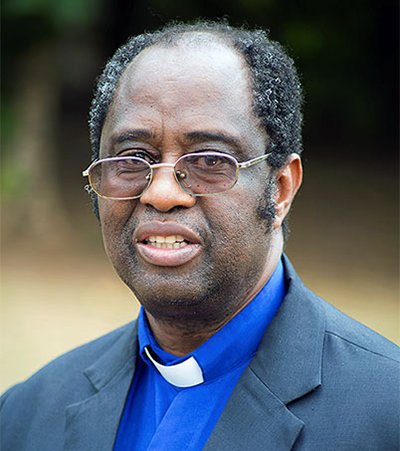
As a child, he was attracted to church activities with the hope of joining the ministry one day.
And bound with the string of faith, the call became stronger and he was eventually ordained a Pastor in the Evangelical Presbyterian (EP) Church in August, 1980.
As a result of his commitment to Christianity, this man of God has dedicated 40 years of his life to the work of God and has contributed positively towards the growth of the church and other denominations both locally and internationally.
Rev. Dr Setri Nyomi, a Ghanaian, is the first African and first non-European to have assumed the position of General Secretary at the World Alliance of Reformed Churches — the umbrella body of all Presbyterian and reformed churches in the world.
Background
Rev. Dr. Nyomi hails from Anloga in the Volta Region. He had his General Certificate of Education (GCE) Ordinary Level (O’ Level) at Prempeh College, Kumasi, and GCE Advanced Level (A level) at Mawuli School, Ho, where he studied General Arts.
His theological studies began at the University of Ghana, Legon, where he graduated with BA (Hons) in 1978, and Trinity Theological Seminary, Legon, which he completed in 1980.
He received a Master of Sacred Theology Degree from Yale University Divinity School in 1981 and a Doctor of Philosophy (Ph.D) in Pastoral Theology from Princeton Theological Seminary, Princeton, New Jersey in 1991, all in the United States of America (USA).
Journey
The Theologian speaking to The Spectator about his life and career said he did not begin his divine journey with the aim to serve abroad but as the saying goes that “God works in mysterious ways”, it turned out that his work in Ghana was noticed and appreciated elsewhere.
He noted that his call to the ministry was “strengthened” when he went to Vicksburg, USA, in the 70s for the first time as an exchange student to attend high school.
“That year, lot of things challenged my perception of this world. I saw a different country where there was discrimination. I didn’t experience it personally but I saw it. There was discrimination even by people who were in church,” Rev. Dr Nyomi recalled.
This debased tradition he encountered abroad set off his ministerial journey to make a difference and also be “a force for justice.”
Leadership
Between 1994 and 1999, Rev. Dr Nyomi was a Senior Executive of the All African Conference of Churches (AACC) which brought most of the protestant denominations in Africa together.
From April 2000 to August 2014, he became the General Secretary of the World Alliance of Reformed Churches (WARC). The organisation has a membership of about 80 million Christians in 108 countries.
In 2010 and under his tenure, WARC was changed to World Communion of Reformed Churches (WCRC). The mandate of the organisation, he explained, was to unite the churches and speak on their behalf as well.
As the spokesman of the WCRC, Rev. Dr. Nyomi had led delegations to dialogue and help resolve conflict in countries such as Liberia, Lebanon, Pakistan, Syria, DR Congo, Iraq, among other conflict-prone nations and returned to Ghana in 2014 after 14 years of dedicated service.
Currently, he is the District Pastor of the Adenta EP Church in Accra, a Senior Lecturer at the Trinity Theological Seminary and the Council Chair of the Evangelical Presbyterian University College, at Ho.
Prior to his mission abroad, he served at the Dzelokope EP Church in the Volta Region, and the Abeka EP Church also in the Greater Accra Region, among others.
Sacrifice
The Reverend Minister intimated that the church was not a profit-making venture and that many people “ran away from ministry because they think of remuneration.”
He emphasised that the church was a “sacrificial place” and that in spite of the leadership and financial challenges, “God has always provided” for him and his family.
Highlighting other challenges, Rev. Dr Nyomi cited instances where people “decided to be hostile” and attempted to soil his hard-earned reputation because they thought he was interested in some other leadership positions.
“At the World Communion of Reformed Churches, a few elements had wondered why an African should be their leader.
“They tried to play their tricks, and I could see their tricks through my divine spectacles, and it was always defeated by God,” he said sarcastically.
Church’s role
Apart from proclaiming the gospel, Rev. Dr Nyomi maintained that the church must speak against social injustice stressing that “if there is oppression” in any part of the world the church should not be silent: “it must speak up.”
While praising churches that reach out to the poor and needy, he said that the church must as well tackle the fundamental issues on why people were poor in the first place.
“Ours is not a call to be greedy or teach people to be greedy. We should not glorify greed in the name of God. Ours is to trust God to take care of us and to send us to take care of other people.
“If people are suffering because the economy is bad, we need to be advocates in addressing the government at all levels about what its policies are doing to the people,” he noted and again advised church leaders to desist from centering their preachings on prosperity because “that is not what the gospel should stand for.”
Book
Rev. Dr. Nyomi has influenced a good number of theology students through his work. He has done stints of visiting professorship in institutions in Germany and USA and continues to make adequate use of his expertise in other capacities as well.
He would launch his book titled “By God’s Grace – Memoires of Setri Nyomi” at the Trinity Theological Seminary in Accra on Monday, August 17, 2020 to mark his 40th anniversary in the ministry.
At age 66, he loves playing indoor games, singing and enjoying choral music. He is married to Madam Akpene Esther, a Chemist by profession. They have three children.
Profile
Albert Litela Obidiaba: The artist who wove Ghana’s soul into the King’s Baton
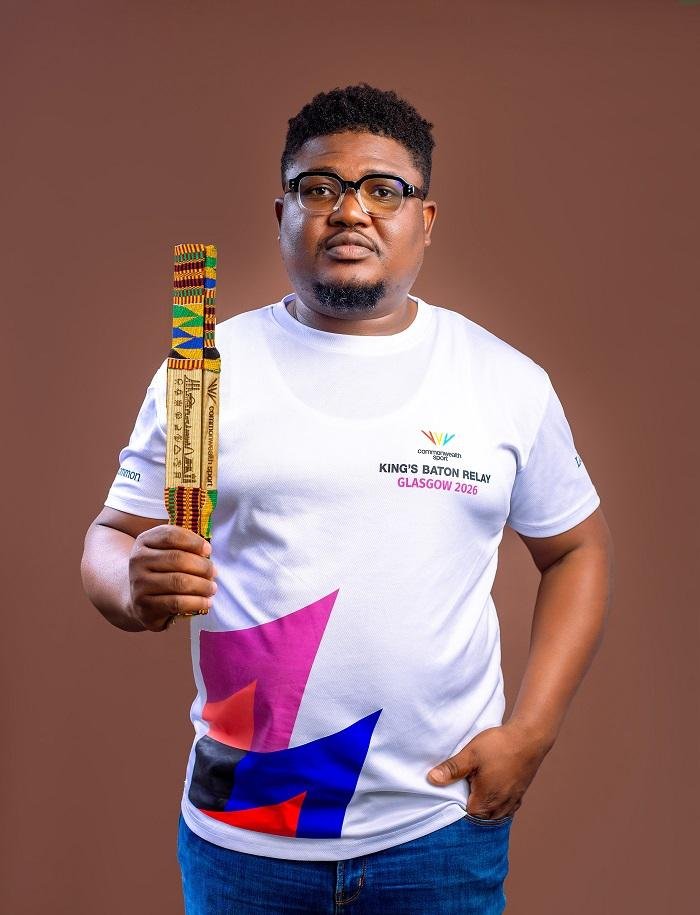
When the world’s eyes turn to the King’s Baton on its global journey, one of Ghana’s most profound artistic stories travels with it. It will be a story of creativity, culture, and national pride crafted by Albert Litela Obidiaba.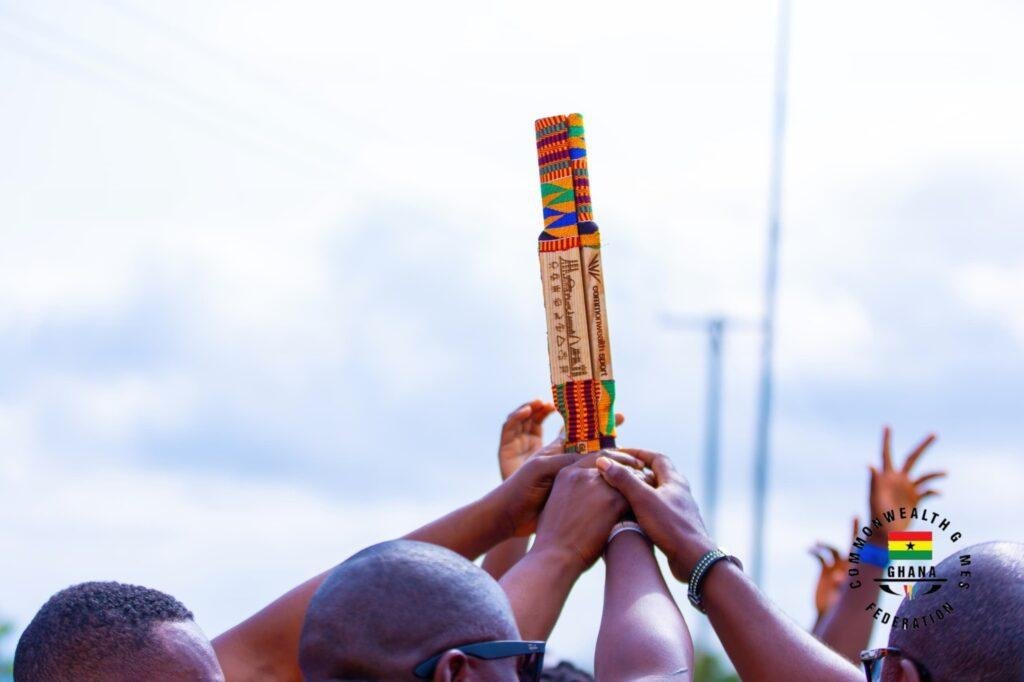
From the quiet town of Old Baika in the Oti Region, Albert’s journey as an artist has always been about telling stories. It is not just through words, but through symbols, textures, and meaning.
“From a young age, I was drawn to the power of art, knowing how colours and textures can capture not just emotion but culture and identity,” he recalls.
Today, his name has become synonymous with innovation rooted in traditional bridge between Ghana’s past and its global creative future.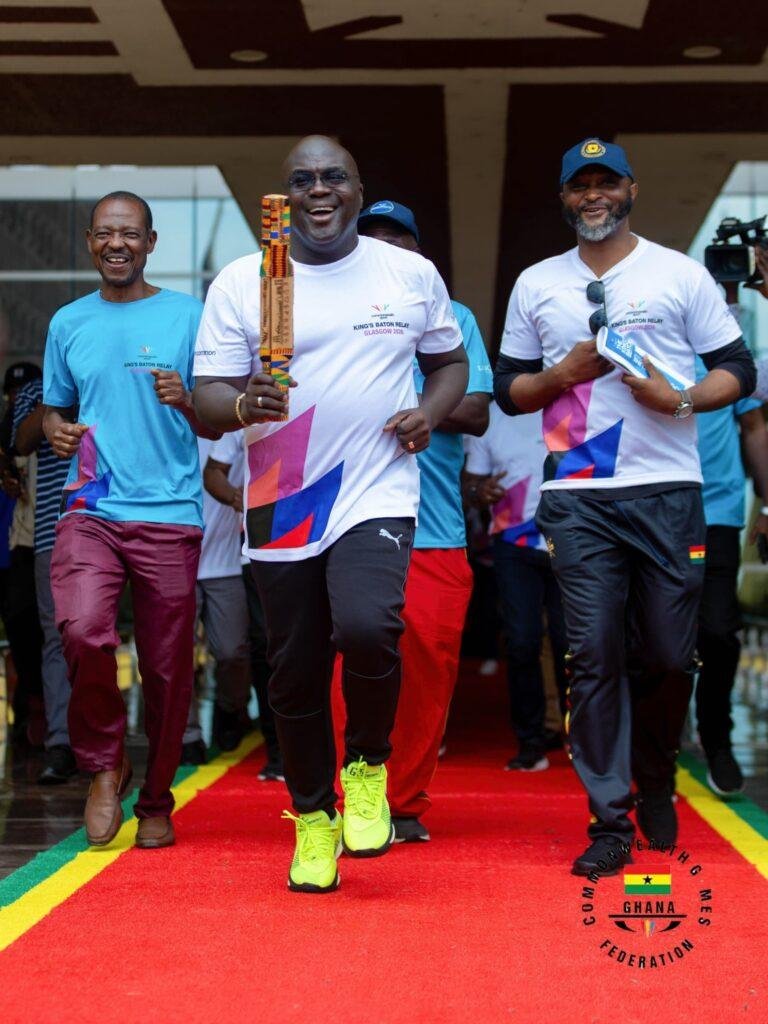
Albert’s love for art was born from curiosity. Surrounded by the vibrancy of Ghanaian culture; the patterns of kente, the stories behind Adinkra symbols, and the textures of daily life, he began sketching and crafting early on.
“Simple things told deep stories,” he says. “That fascinated me.”
As he matured, his art evolved into a personal mission to preserve and reinterpret Ghana’s heritage for a modern audience. His style reflects a seamless blend of culture and contemporary design, each piece a narrative of unity, history, and pride.
“I see art as storytelling through form and symbolism, it should feel rooted in purpose yet speak to today’s world,” he explains.
When the call came to design Ghana’s version of the King’s Baton, Albert saw it as both a national duty and a creative calling.
Recommended by mentors like Mr Charles Osei Asibey, who trusted his talent and understanding of Ghanaian symbolism, he embraced the project wholeheartedly.
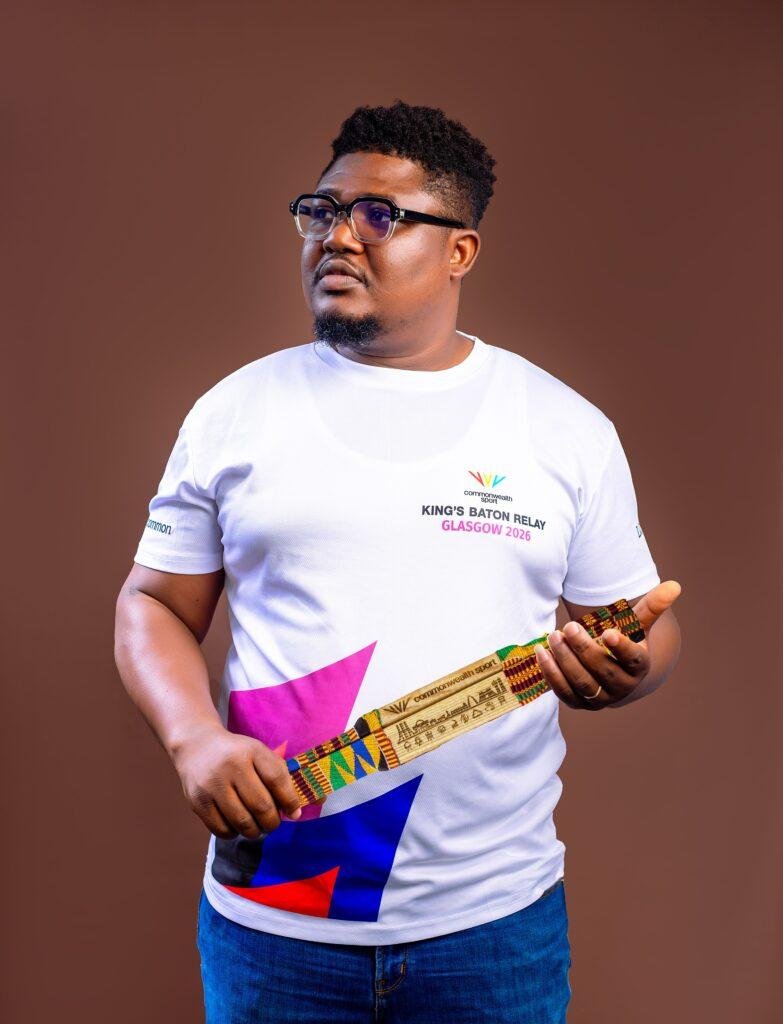
His vision was clear; to create a piece that would embody unity, pride, and the enduring spirit of Ghana.
Drawing from traditional motifs, he integrated textures inspired by kente weaving, representing hard work, continuity, and creativity. The golden tones symbolise strength and dignity, while the contours and natural motifs mirror Ghana’s landscapes and people.
“The King’s Baton had to tell our story of who we are, what we value, and how we see the world, it is more than art, it is identity in motion,” he said.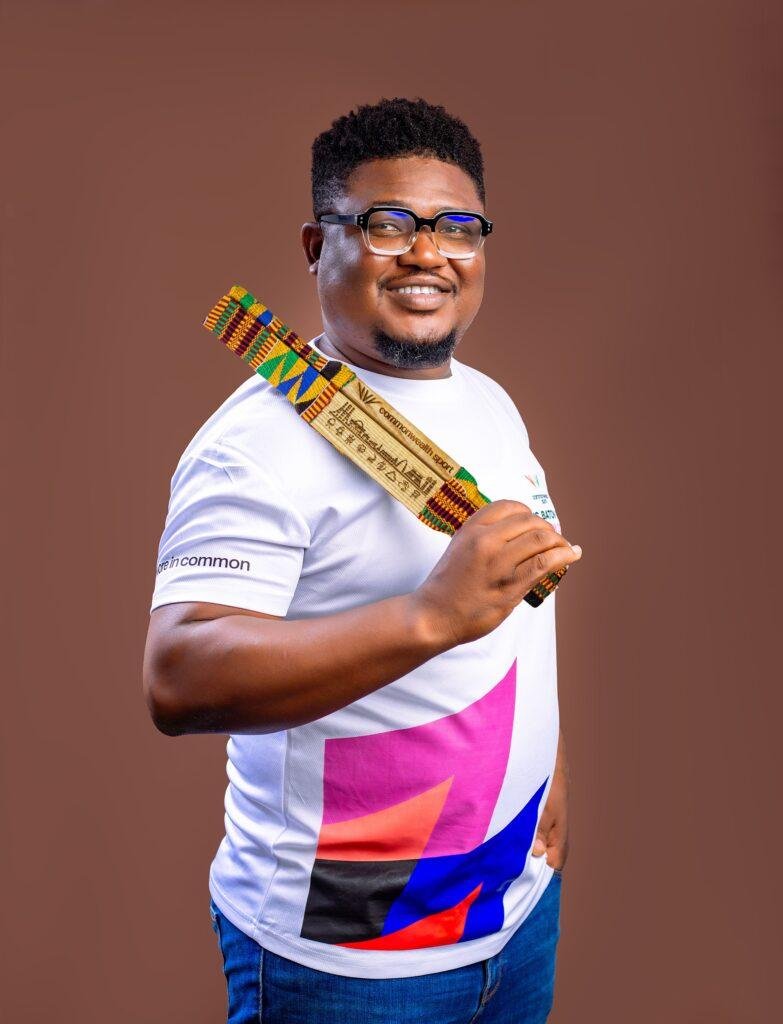
Every etch, every pattern carries meaning. From concept to completion, the entire process took three intense weeks which were filled with research, design sketches, consultation, and collaboration with skilled artisans.
“It was days and nights of work, but a lifetime of meaning,” he says with quiet pride.
Creating a design that represents all of Ghana’s diverse cultures was no small feat. Albert had to balance aesthetics, authenticity, and technology thereby using sustainable wood, carefully treated and certified, to reflect the nation’s commitment to nature and preservation.
“It wasn’t easy finding the right mix,” he admits. “But those challenges pushed me to think deeper. They made the final piece stronger — both artistically and symbolically.”
For Albert, Ghanaian culture is both muse and message. His works echo the values of unity, strength, persistence, and wisdom, drawn from Ghana’s traditions.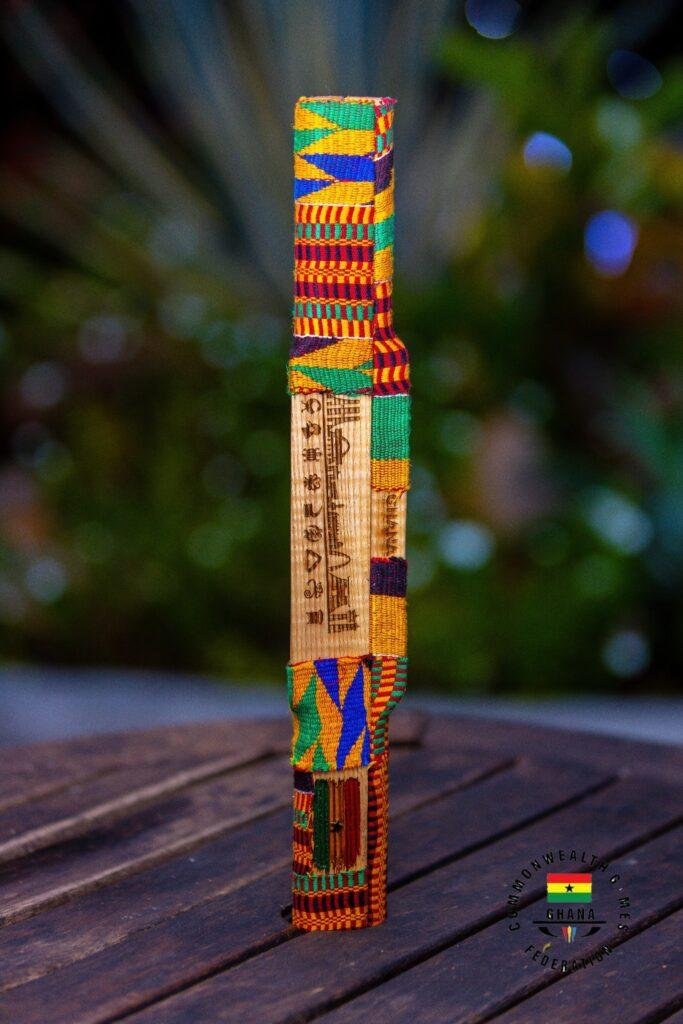
“Art preserves who we are and every line and symbol tells a story of belonging,” he said, and believes art is one of the most powerful tools for building national pride.
Designing the King’s Baton has been a defining moment in his creative journey and that it deepened his appreciation for cultural storytelling. “It taught me that creativity is also a form of service,” he said.
The experience has opened new professional doors, but more importantly, it gave him a renewed sense of purpose making him embrace a call to national duty.
“My soul will be glad even after my days on earth are over,” he said beaming with smiles.
Beyond the King’s Baton, Albert has worked on numerous projects celebrating Ghanaian identity through contemporary art and design. His ongoing works explore symbolism and heritage in new forms which includes blending materials, stories, and styles from across Ghana’s regions.
He is currently preparing projects that continue the conversation the baton began. They are about unity, creativity, and Africa’s evolving artistic voice.
To young artists aspiring to make their mark, Albert’s advice is for them to believe deeply in their craft and that the world is always looking for authenticity “which comes from knowing who you are and where you come from.”
On how he wants to be remembered, he said, “I want to be remembered as an artist who used creativity to celebrate culture and connect people. If my name is remembered as the one who designed Ghana’s version of the King’s Baton, that will be enough, because it means I carried Ghana in my hands, and shared her with the world.”
By Esinam Jemima Kuatsinu
Join our WhatsApp Channel now!
https://whatsapp.com/channel/0029VbBElzjInlqHhl1aTU27
Profile
Survival to service: Margaret Odame Donkor the breast cancer preacher
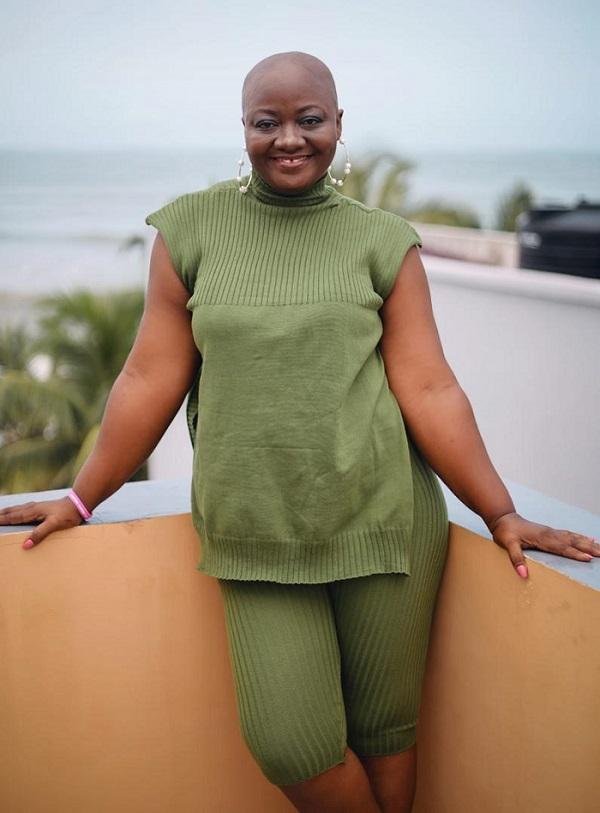
A ‘trotro’ bus heading to Nsawam was filled with the usual sounds from conversations, music, and sometimes a preacher delivering a message.
But when Margaret Odame Donkor rises to speak, she does not preach salvation or sell herbal remedies. Instead, she shares her journey as a breast cancer survivor, urging passengers to examine their breasts regularly, seek medical help early, and never lose hope.
Her pulpit is not a church, but the crowded minibuses of Ghana’s public transport system. Her message is not about repentance, but about survival.
She urges women to check their breasts regularly, encourages men to support their wives during health challenges, and reassures everyone listening that a cancer diagnosis is not the end of life.
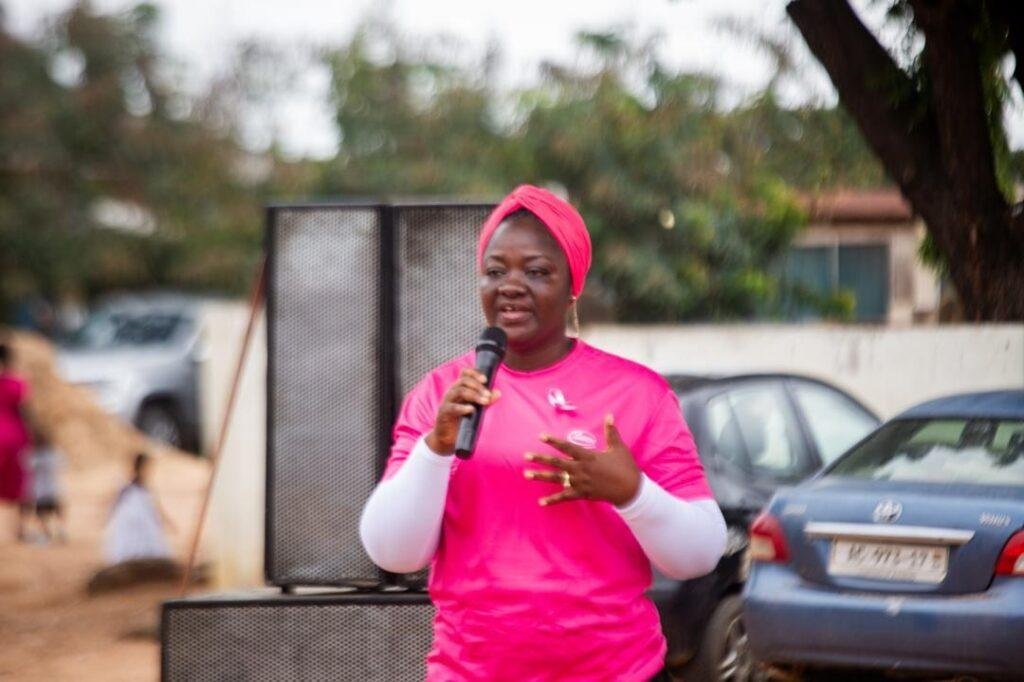
For Margaret, creating awareness is more than a duty-it is a calling born out of personal pain, fear, and triumph.
Her words carried weight because they come from lived experience.
At age 48, Margaret has walked through the valley of fear and pain, battled stage three invasive carcinoma, and emerged not just a survivor but an advocate determined to educate others.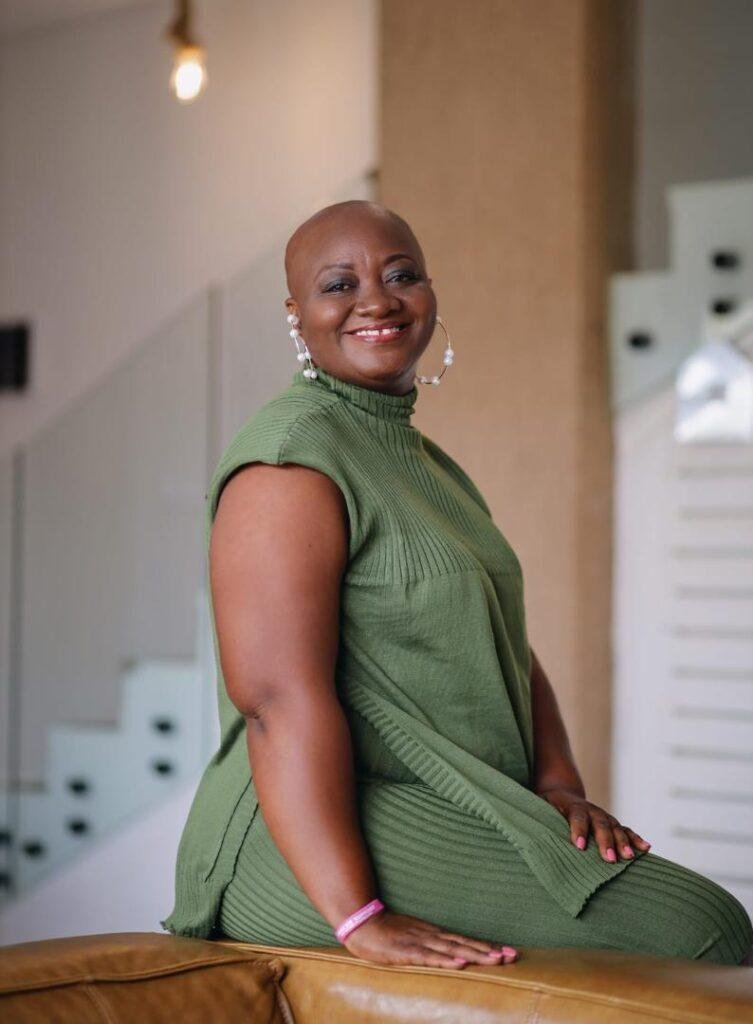
Cancer journey
Margaret’s encounter with breast cancer stretches back decades. At 22, she discovered a lump in her left breast. It was removed and declared benign. Relieved, she skipped regular checks and moved on. Then in 2021, the lump reappeared—this time spreading toward her armpit.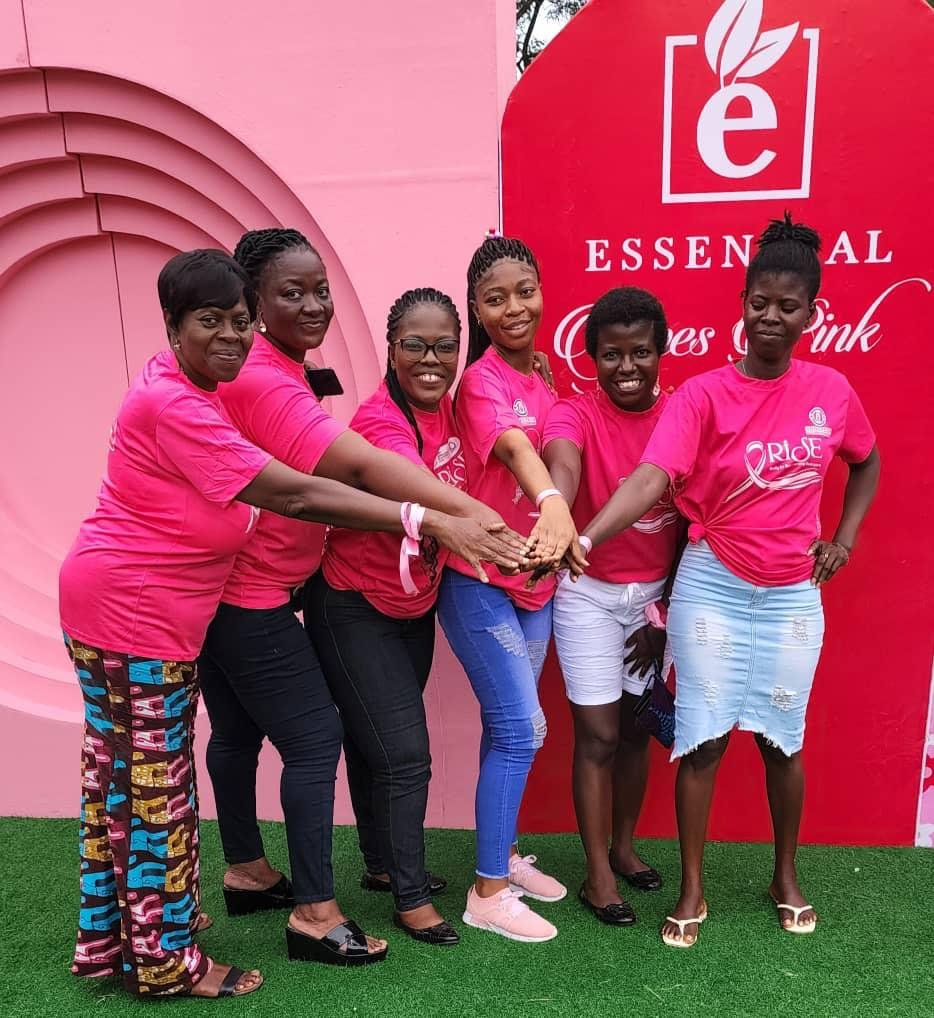
At a church screening in October 2022, doctors detected suspicious lymph nodes. Further tests confirmed her worst fear: stage three invasive carcinoma.
“It wasn’t easy,” she recalls softly. “But my faith in God kept me strong. My husband, children, family, friends, and colleagues formed an army behind me. Their prayers, visits, and encouragement gave me the courage to fight.”
“Be grateful every day because you never know what tomorrow may bring. No one has it all, but with love and support, you can endure,” she stated.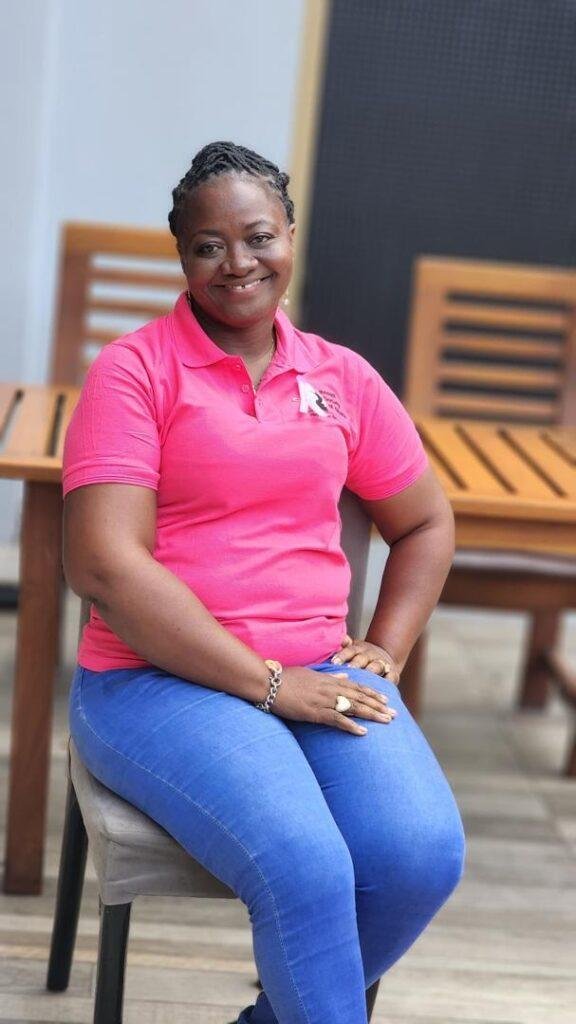
Her greatest fear remains recurrence and not living long enough to see her children graduate and become the people she dreams for them to be.
Before cancer disrupted her life, Margaret had found purpose in interpretation. In 2020, a friend spotted a Judicial Service vacancy and encouraged her to apply. After years of unsuccessful attempts at government jobs, she was reluctant, but she tried once more. This time, she succeeded and was posted to the Eastern Region, her home.
Today, she works at the Nsawam District Court, one of the busiest in the area. On a typical day, she arrives at 7:30am, prepares dockets, and confers with magistrates. She interprets proceedings in Twi, Ga, Hausa, and occasionally Ewe, ensuring that justice was accessible to all.
Her role is demanding. Cross-examinations require her to switch quickly between English and local dialects, while marriages often call for interpreting vows in couples’ preferred languages. Still, she thrives. “The registrars and magistrates I’ve worked with have been amazing. They make the environment very comfortable,” she stated.
Beyond the courtroom, Margaret is also an entrepreneur. In 2017, she founded Nubreed Décor, an events decoration business born from her childhood love for beautifying spaces. She recalls cutting paper decorations as a child and helping her cousin rent out chairs and decorate venues.
Balancing décor with court work was tough, and her health struggles after surgery made it even harder. Radiation left her with persistent rib pain, forcing her to slow down. “Now I hire more hands, which makes business expensive, but it helps me achieve my goals,” she explained.
Her biggest challenge as an entrepreneur remains finance. “The event industry is huge, but I have to work at my own pace and focus on my niche,” she admited.
Cancer changed how Margaret values people and relationships. She learned that those you least expect often become your strongest supporters. She urges families to stand by patients with prayers, encouragement, and financial support, reminding society that a cancer diagnosis is not the end of life.
Her advocacy extends beyond awareness talks. She dreams of establishing a counselling centre for young people and hopes Ghana will expand access to mammograms and radiotherapy centres. “Every patient deserves a chance at survival,” she said firmly.
She urged the youth to live peacefully and be their brother’s keeper, learn to be content and rely on God.
To women, she asserted that, “love yourselves and make breast checks routine while calling on Ghanaians to be open-minded, avoid being judgmental, and show love.
By Esinam Jemima Kuatsinu

 Profile6 days ago
Profile6 days agoAlbert Litela Obidiaba: The artist who wove Ghana’s soul into the King’s Baton

 News6 days ago
News6 days agoDaddy Lumba’s wife, children run to court to injunct December 6 funeral arrangements

 News1 week ago
News1 week agoPresident Mahama to meet Auditor-General, Chief Justice and Attorney-General over misuse of public funds






